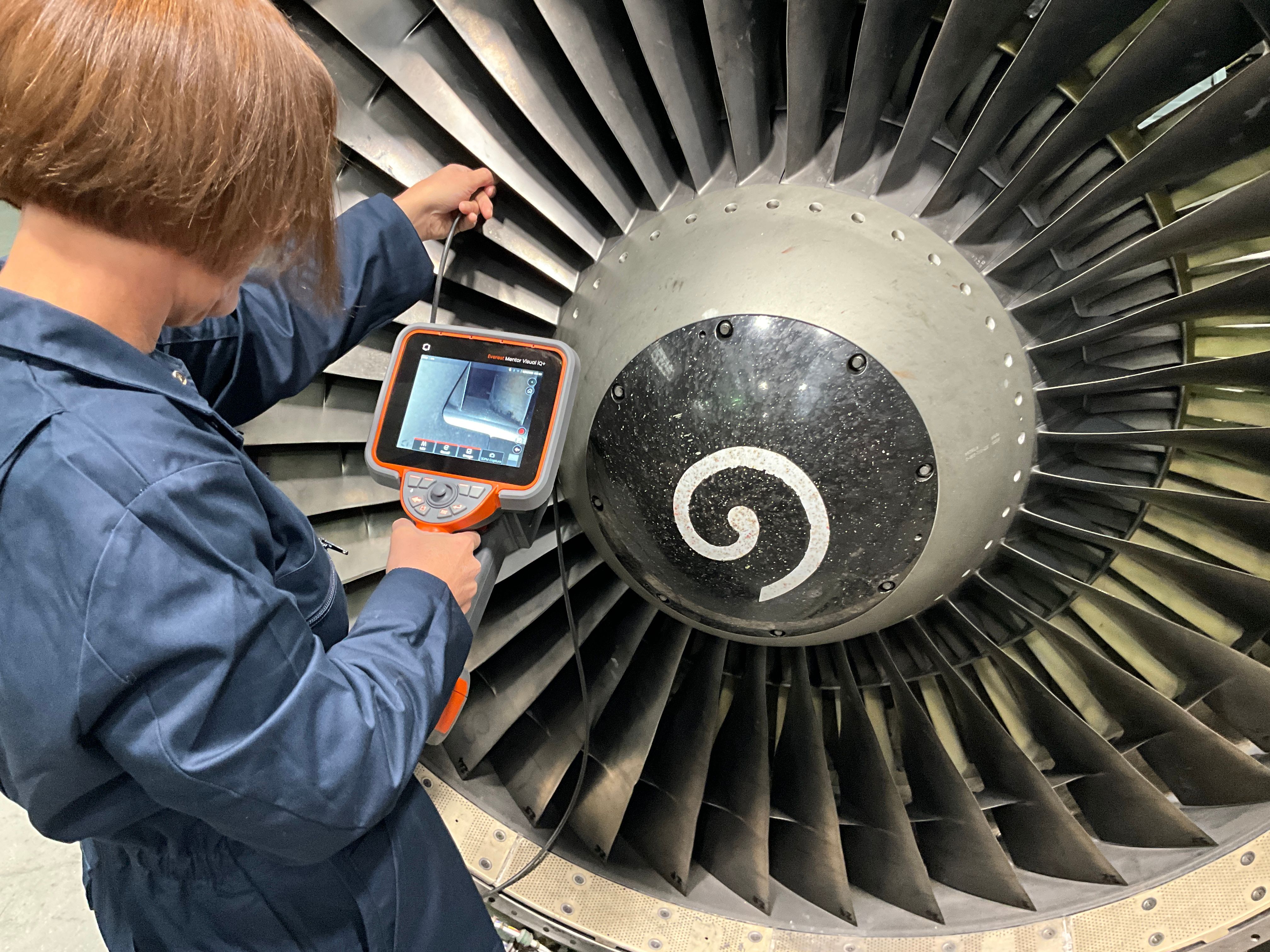Jet Engine Borescope Inspections Boosted with AI Assist per GE Aerospace, Waygate Joint Development
The AI-assisted borescope inspection technology raised model recall rates by 33.6% and increased model precision rates by 13.5% compared to the previous Gas Power-assist model.
GE Aerospace and Waygate Technologies, a subsidiary of Baker Hughes, developed an AI-assisted borescope inspection model for commercial engines. The companies focused on using AI to enhance machine vision-based assisted defect recognition (ADR). They targeted high-pressure compressor (HPC) inspections because they are among the most important and time-consuming maintenance, repair, and overhaul (MRO) tasks.
“At GE Aerospace, we increasingly are seeing the value AI technologies are bringing to help improve the speed, accuracy, and reliability of commercial jet engine inspections,” said Nicole Jenkins, Chief MRO Engineer for GE Aerospace. “Collaborating with Waygate Technologies, we have successfully combined our industry domain knowledge and digital expertise to integrate new AI techniques with the right data to improve the detection capabilities of commercial engine borescope inspections.”
Advancements and Benefits
The new AI-assist technology delivered significant benefits over the Gas Power-assist ADR model v4.1:
- A 33.6% increase in model recall rates improved the identification of HPC defects
- A 13.5% increase in model precision rates reduced former falsely identified defects. The decreased false positive rate was achieved through a larger training dataset and the temporal smoothing algorithm used for detection confirmation.
The AI-assisted features will improve the inspection workflow and deliver greater reliability by reducing the learning curve for new inspectors and helping current inspectors identify previously difficult-to-detect defects. Users are expected to see an increased detection probability and a reduction in inspection-related mental fatigue. In addition to improvements over the Gas Power-assist ADR model, the automated data anonymization tool enables the protection of sensitive partner data and allows it to be added to the training dataset.
Inspection engineer using Mentor Visual iQ+ borescope; image credit: GE Aerospace

Development Process
GE Aerospace delivered a full dataset of engine inspection videos that resulted in thousands of new representative images to train Waygate’s Gas Power-assist ADR model. Following this, GE’s Services Technology Acceleration Center and GE Aerospace Research leveraged subject matter expertise to ensure accurate and complete data labeling was performed. With this data, Waygate applied AI techniques, including a computer-optimized object detection algorithm and novel temporal smoothing algorithm.
“The latest results of this collaboration demonstrate the value added by technological partnerships that are firmly anchored in the business strategy of Waygate Technologies,” said Michael Domke, General Manager Visual at Waygate Technologies, a Baker Hughes business. “The combination of GE Aerospace's extensive customer data and our advanced borescope solutions promises to be a valuable optimization for the entire MRO sector.”
The new technology is available to Waygate customers and will become available to GE Aerospace’s MRO network in late 2024. The AI-assisted borescope solution will be deployed to MRO shops to perform HPC inspections on the company’s GEnx and CFM LEAP engines. Also, through a software update, it will be integrated and available for customer deployment in Waygate’s Mentor Visual iQ+ borescope.
“This joint development illustrates a bigger effort to give our inspection engineers more advanced tools using AI, computer vision, and automation to help them work productively and meet the needs of our customers,” added Jenkins. “We believe this AI-assisted borescope system will help significantly reduce the time it takes to perform HPC inspections while delivering high accuracy.”
GE Aerospace Software
In October 2024, GE Aerospace provided its 52,000-employee workforce with a new software-based assistant—AI Wingmate. The company collaborated with Microsoft to use Azure AI, including Azure OpenAI Service, to bring enhanced security, compliance, and responsible AI inside GE Aerospace’s network. Employees can use AI Wingmate to collaborate on new ideas, new learnings, and new initiatives to improve air travel.